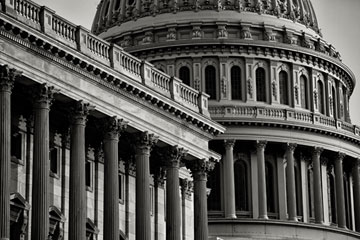
(3 of 4)
Last year, Ludwig was among the highest-paid executives in the financial world, reportedly making more than $30 million--more than JPMorgan Chase CEO Jamie Dimon or Goldman Sachs chief Lloyd Blankfein. Ludwig oversees the enterprise from a 13,000-sq.-ft. mansion in northwest D.C., the 19th most expensive home in the city according to Washingtonian magazine. Promontory occupies the top floor of a new steel-and-glass office building two blocks from the White House.
Outsourcing Regulations
The rise of private regulation in the banking industry is not without its shortcomings. In January 2010, London-based Standard Chartered bank reported to U.S. officials that its New York office might have problems with its anti-money-laundering procedures. As part of an agreement with the Federal Reserve, the Treasury Department and New York State's banking regulator, Standard agreed to hire Promontory to determine if bankers had violated Treasury Department and other rules in routing money to and from accounts in Iran through American banks and then back overseas.
Promontory found that Standard Chartered had violated the rules in millions of dollars' worth of transactions. That turned out to be a fraction of the $250 billion the bank ultimately conceded it had moved for Iran during the period. Promontory has been subpoenaed for records in a separate investigation by New York State bank regulators regarding the firm's conduct during its review of Standard Chartered practices, a source familiar with the investigation told TIME. "Promontory from time to time receives document requests in the form of subpoenas related to client activities," a spokesperson explained. "Promontory does not disclose the nature of individual requests or scope of inquiry." Regarding its review of the bank's transactions, the spokesperson says, "We were hired to review a set of transactions, determine what those transactions showed or did not show and submit the results to the client's lawyers, and that is what we did. We were not retained to characterize the transactions or interpret their legal meaning."
Private regulators not only police bank practices; they are often tasked with forcing banks to mend their ways. After a rogue wheat-futures trader lost MF Global $141 million on the night of Feb. 26, 2008, the Commodity Futures Trading Commission ordered the firm to hire a monitor to help fix its risk-management problems. The firm chose Promontory, and on May 26, 2010, Promontory reported to MF Global's board that it had "successfully and effectively" implemented its recommendations. A mere 18 months later, MF Global collapsed, allegedly raiding client accounts for cash in the process. In his report on the firm's demise, the bankruptcy-court-appointed trustee, former FBI director Louis Freeh, found that the new, stricter risk-management policies Promontory had vouched for "were never fully implemented." (Promontory says the policies were mostly implemented.)
